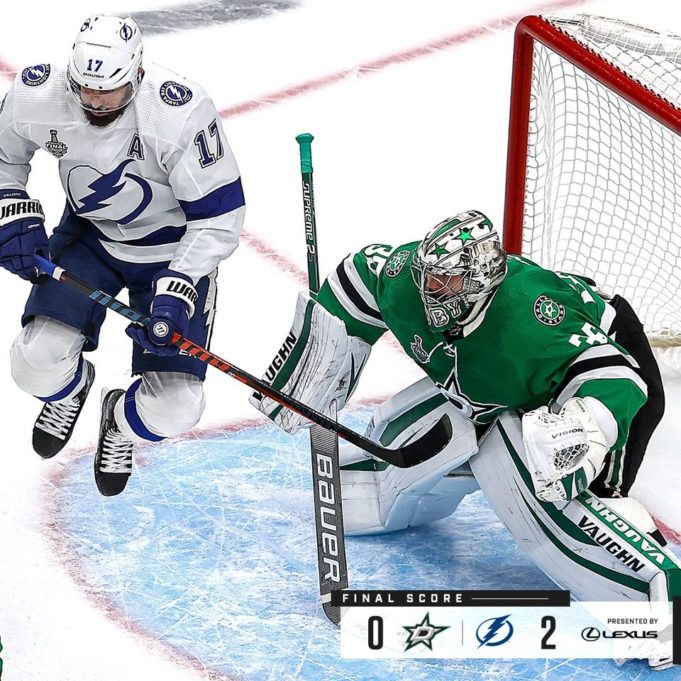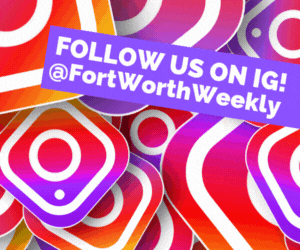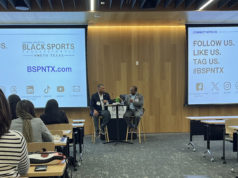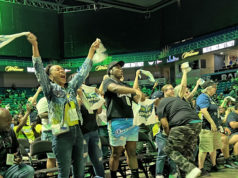I vividly remember Game 6 of the Stanley Cup final in the year 2000 as New Jersey Devils captain Jason Arnott took a one-timer off a no-look pass from winger Patrik Elias in the right corner and drove it home past a sprawling Eddie “The Eagle” Belfour. That game-winning shot in the second overtime clinched the Cup for the Devils and thwarted the Dallas Stars’ chances at a championship repeat.
I remember it with such clarity because that single gut-wrenching moment was the first time I had ever really felt the genuine pain experienced by fans when their beloved sports team loses. That Arnott goal was a dagger in my fledgling sports heart. The pain was real.
Fast forward 20 years later, and today that same empty, twisted-stomach feeling has again settled into my overactive limbic system. After falling 2-0 to the Tampa Bay Lightning in another Game 6 loss in the Stanley Cup final, this year’s Dallas Stars’ fairytale season ends, heartbreakingly, without a happily-ever-after.
Aside from eliminations at the hands of better teams in Game 6’s of the final, the 2000 Stars and the 2020 version have little in common. The Stars of the late ’90s had grown from a little Minnesota transplant team playing a quirky and unfamiliar sport from the far frozen north just trying to establish itself in Texas — the bright, shiny buckle of the U.S. Sunbelt — into one of the NHL’s undisputed best teams. They were expected to be there at the very end.
This year’s Stars had as unlikely a journey to the championship round as maybe has ever happened in sports. Multiple terrible winless streaks, an unexpected mid-season coaching change, a four-month shutdown, the players’ separation from family, and a series of injuries to key players, and being the underdog in four straight series — that Dallas made it all the way to the end is a testament to the massive amount of heart, grit, and fight inherent in the team. They believed in themselves when no one else did, and they made us believe in them too. The players should have no regrets. They gave it everything they had and simply ran into a better team. They should take pride and cherish the brotherhood they shared once the initial sting has subsided, though it may take a while.
Monday night, after their last gutsy push to tie as time was expiring, several exhausted Stars players sank to their knees and wept. And either outwardly or inwardly, literally or symbolically, a legion of fans, old die-hards and new bandwagoners alike, wept too. Two months of isolation, playing endless marathon games on as many days as not, and pouring every ounce of themselves into accomplishing a singular goal, and they came just short. The agony of elimination is felt more deeply the closer you get to ultimate victory. We fans hurt along with them and share in their pride.
Those who don’t follow sports simply don’t get it. To them, that someone could be so emotionally invested in a “game” played by grown adults for massive sums of money, especially when so much else, with such higher import, is “going on out in the real world,” is simply stupid. What those derisive killjoys with their flippant use of intentionally mixed “sportsball” metaphors miss out on is that, to those of us not victim to bouts of undeserved self-righteousness, sports can be a vehicle to experience the full range of human emotion. Sports fans are empaths.
From awe, exhilaration, frustration, and, yes, even pain, genuine sports fandom can offer the chance to feel things that everyday life simply can’t consistently provide, vicarious as it may be. Some may find that silly, maybe even worthy of ridicule, and this isn’t for them. There’s likely a list of unread high-minded articles from The Atlantic or The New Yorker saved in these folks’ browsers that they could pat themselves on the back for reading instead.
For those that can relate. Relish that pain. Be grateful for it. For it is the price for all the joy. In a year that will forever be seared into the memories of every living person, these gutsy men gave us a reason to cheer. For a few hours every other night, we were pleasantly distracted from the exhausting litany of miserable experiences that are facing each of us every day: a virus that has killed a million people, a malignancy of racist and militant police brutality, and a presidential election determined to be undermined by manipulation and deceit, not because we simply want to escape them but because it gives us brief respite to keep on enduring and battling them.
So, thank you, Stars. Thank you for giving yourselves to us. The joy was worth the pain.












